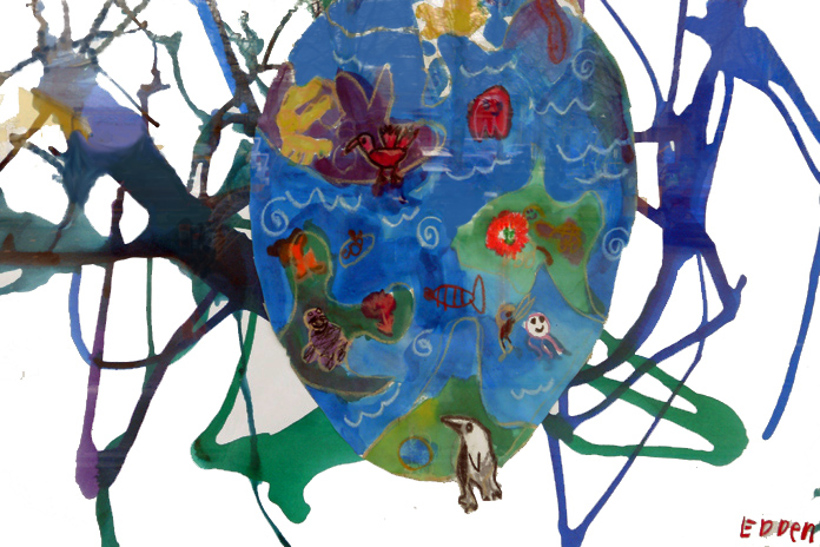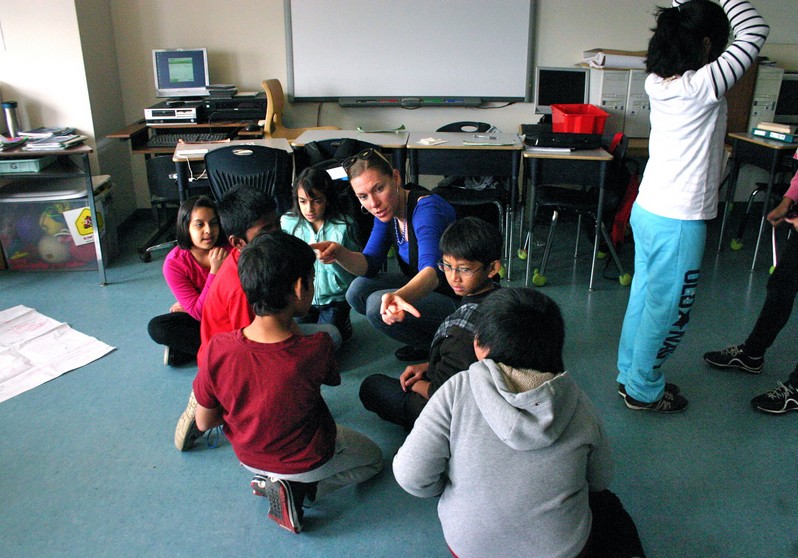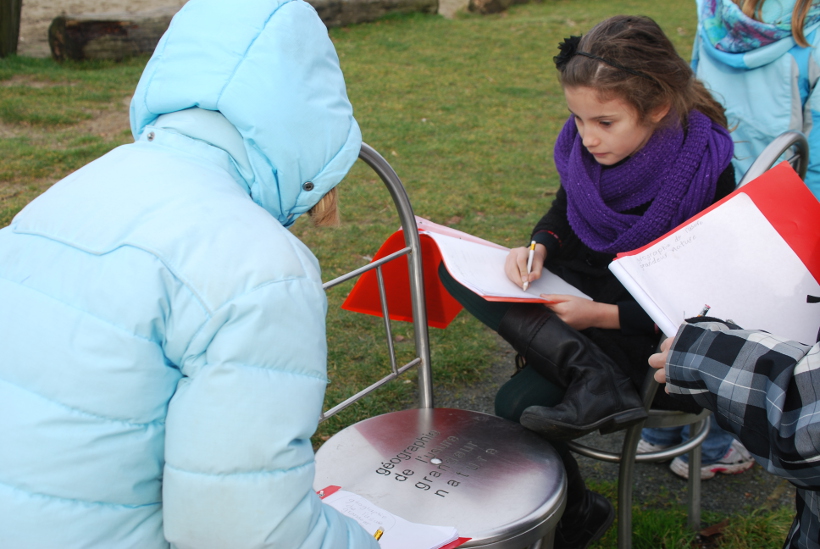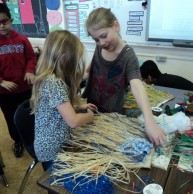Inter-dependency of Humans and Ecosystems
Science - Grade 7
This unit of inquiry is not a recipe book but rather a launchpad to inspire new BIG IDEAS. We encourage you to use and/or modify one, or several of the BIG IDEAS below. Adapt it to the grade/ ability level of your students.
Enduring Understanding
Ecosystems support all life, including humans. Human activities impact ecosystems.
Guiding Questions
How does ‘Ordinary become Extraordinary’? How do ordinary living and nonliving beach specimens add extraordinary value to our lives? How do ordinary living and nonliving things that travel across borders have extraordinary impact on our lives?
Mind Opening
Choose or devise practices to encourage students to be open to new experiences and ways of thinking in your classroom. For example, the MindUP in-school program.
Discovery and Inspiration:
Launch the Project
• Introduce the Theme: Present the Enduring Understanding and Guiding Questions using vocabulary that is appropriate for your grade level.
• About Vancouver Biennale: Play a short video.
• Create Project Space: Brainstorm ideas to make the project theme visual and visible using bulletin boards, and/or a project corner to share relevant materials and inquiry questions and processes.
Reference Resources:
• Introduction to Sculpture and Public Art Unit Plan for information on how art has evolved over time and the unique experience sculptures and/or public art brings
• Vancouver Biennale 2014-2016 Exhibition Theme: Open Borders / Crossroads Vancouver
• Vancouver Biennale Legacy: Echoes (Michel Goulet, Canada)
• About Artist and Artwork (PDF)
Other Resources
- Vancouver Aquarium, Stanley Park
- BC Ministry of Environment Ecosystem Branch: Website
Learning to Learn:
Art Inquiry
Make a visit to Echoes and encourage students to freely explore and interact with the art pieces individually and in groups. This Art Inquiry process enables the students to practice observing, describing, interpreting, and sharing visual information and personal experiences. Use the Art Inquiry Worksheet (PDF) to guide and capture their ideas and impressions. Customize or create your own Art Inquiry Worksheet as appropriate for your project and class needs.
Shared Insights
• Sharing Art Inquiry Experience: Ask students to share the Art Inquiry Worksheet responses in class.
• Artist Themes – Research: In small groups students rotate between information stations detailing the artist’s life and work. Station topics include: (1) education and training; (2) lifetime of artwork; (2) materials and processes; (3) beliefs and values. At each station, students answer questions and complete a task. For example, at the station “life’s work” students might plot the artist’s various installations on a map of the world.
• Artist Themes – Ordinary to Extraordinary: Ask students to respond to questions such as: Are these ordinary chairs? What made these chairs different from chairs in the classroom? What extraordinary contributions do artists bring to society?
Ask students to identify extraordinary everyday elements in the natural environment of Kitsilano Beach. Discuss why Echoes is an art installation and not just a set of ordinary chairs. Explore the messages on Echoes and discuss ways ordinary people can get their messages heard.
Inquiry Challenges
Facilitate discussion on beaches in our community, e.g. use a Venn Diagram to elicit the positive and harmful ways beaches are used. Share personal interpretation of what it means to be ‘extraordinary.’
Through research and investigation discover the extraordinary properties (natural, social and economic) of the ordinary items identified at the beach during the field trip. How do they impact our environment?
Out of these identified ordinary items at the beach, identify the cross border items and through research and investigation discover their extraordinary impact on our environment (natural, social and economic).
Student Creation
Students and teachers decide on medium and methods to communicate their BIG IDEAS learning to target audience. Use posters, websites, montages, written essays/poems, film and audio, dance, visual arts or theatre.
Taking Action
Students can promote their learning to the broader community through their artistic creations or select global or local organizations that promote the cause they are passionate about. The focus being students as learners and communicators, to engage with an audience to get feedback, and ideally, the action is propelled even further.
Reflection
• Teacher and students can reflect on their entire learning process by revisiting the Enduring Understanding and relevant Guiding Questions.
• How did the unit of study open inquiry, create cross–curricular learning opportunities and/or apply learning to real life situations? Has this unit of inquiry changed your opinions, values and world view? In what ways, if any, has it helped you grow as a learner?
Ideas for Cross-Curricular Access
• Language Arts: Select a poem or a piece of prose that pronounces the extraordinary in the ordinary (usually found in nature, relationship, discovery). What can we learn from this ‘mindful’ description?
• Mathematics: Use your knowledge of statistics and probability to present your findings in the social studies exercise.
• Social Studies: Current events exercise – research current ships in port, country of registry, previous and future ports of call. What can you surmise from this information on this cross border trade and has this created extraordinary change in our lives? Look at common goods in your classroom (personal and school) and discuss where they have come from. What would it be like in the classroom without these goods?
What would be perceived as ‘extraordinary’ during ancient civilizations, as compared to today. In what ways, if any, has our perception of ‘extraordinary’ changed over time?
Credits
Written by: Terry Howe, Curriculum Consultant and Retired School Principal
Contributor: Katherine Tong, Vancouver Biennale Education Program Director
©2013 Vancouver Biennale



